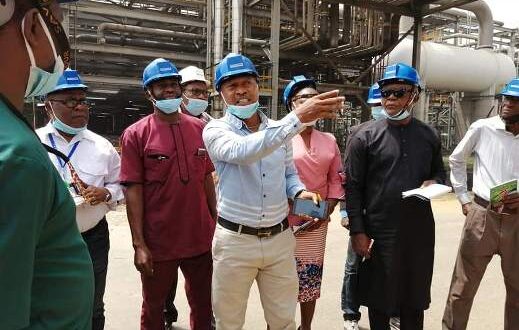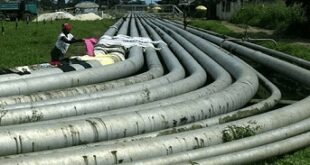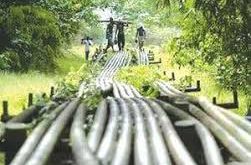… Does Not Emit Any Soot into Environment ~Nkwocha
Amaechi Okonkwo, Port Harcourt
Indorama-Eleme Petrochemicals Limited has said it produces 95 per cent of all fertilizer currently produced in Nigeria, even as it added that its operations do not emit any soot into the environment.
This statement was made by the head, Corporate Communications, Indorama, Dr. Jossy Nkwocha, Monday shortly after taking journalists on a tour of some of the company’s plants at Eleme, Rivers State.
He emphasised that it was important for the company to clarify the facts about its operations based on some insinuations at some quarters that the petrochemical and fertilizer manufacturer might contribute to the heavy soot pollution currently being witnessed in parts of Rivers State.
Nkwocha explained that through import substitution, Indorama Eleme Petrochemical saves the country N7 billion annually on importation of fertilizer, adding that the company supplies about 23 million farmers in Nigeria with fertilizers.
The tour of the facility by journalists included visit to the fertilizer plants and the petrochemicals plants as well as the company’s gas turbines and control rooms.
Nkwocha stated that although the company had not been accused by anyone or group of emitting soot into the atmosphere, it decided to be proactive by taking journalists on tour of its plants.
He said: “We have taken this pain to bring journalists from different newspapers in Nigeria to come and see for themselves that we are an open book; to show you that Indorama operations do not emit any soot whatsoever.
“We have a closed system and this closed system does not allow any extraneous gas to escape. As explained to us in the control room, we buy this natural gas from either Agip or Total and we don’t allow it to waste by flaring it.”
Earlier, Engr. Charles Osuji, Polyethylene Plant Operations manager, said that the company operates with international standards and best practices which result in its certification of ISO 9001, 14001 and 45001, adding that the 14001 certification was conferred by British Safety Council based on the condition of absence of environmental pollution by the company.
He explained that soot was usually caused by incomplete combustion, stressing that the company could not afford incomplete combustion since it would mean loss of revenue on their main raw material, natural gas.
He added that their operations were being audited quarterly by the Federal and State Ministries of Environment, Department of Petroleum Resources DPR and National Environmental Standards and Regulations Enforcement Agency NESREA, adding that all these agencies would detect and immediately report if there was any form of pollution from their operations.
 PH Mundial – Port Harcourt Online Newspaper News Across The Region
PH Mundial – Port Harcourt Online Newspaper News Across The Region





